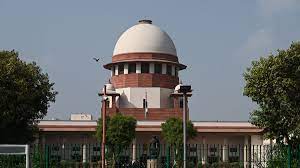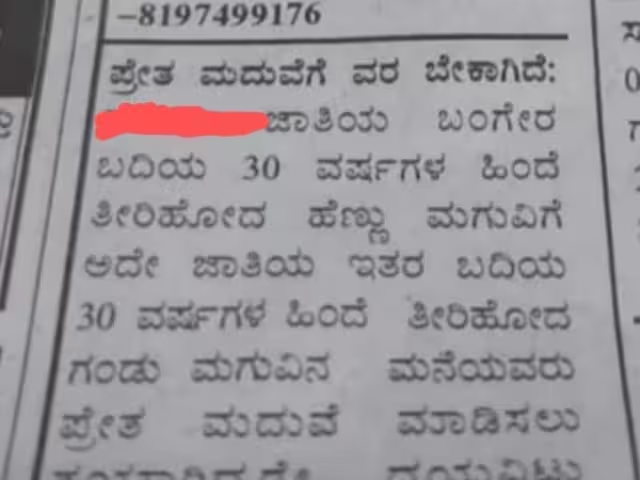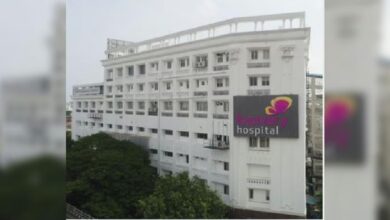No Quality Education if Student Punished on Religious Grounds: SC on UP Student Slapping Case
The Uttar Pradesh government was criticized by the Supreme Court on Monday for its inadequate investigation into a case in which a Muslim schoolboy was allegedly slapped by his classmates in Muzaffarnagar on the orders of his teacher. The Supreme Court argued that there cannot be any quality education if a student is sought to be punished on the basis that he belongs to a particular community.
The top court ordered the UP government to choose a senior IPS officer within a week to investigate the event after expressing its unhappiness with it.
“Due to the victim’s faith, the instructor instructed the pupils to beat him. It asked, “What kind of education is being given?”
In addition to ordering the IPS officer to submit a report to the Supreme Court, a bench of Justices Abhay S. Oka and Pankaj Mithal urged the state government to hire professional counselors to provide counseling to the victim and those students engaged in the event.
If a kid is being punished because he is a member of a certain community, there cannot be any excellent education. The State seems to have violated the RTE Act’s and the relevant regulations’ obligatory requirements, the panel said in its judgement.
It was considering a request for a quick probe in the matter made by Tushar Gandhi, the great-grandson of Mahatma Gandhi.
The top court expressed “serious objections” to the way the FIR was lodged after a protracted wait after reviewing the status report submitted by the Muzaffarnagar Superintendent of Police. According to the report, the victim’s father has made a particular claim that his son was physically assaulted at school because of his religious beliefs.
“The student’s father made a report, but no FIR was immediately lodged. The complaint pertained to cognizable offenses. Initially, just a non-cognizable complaint was submitted, and the FIR was only lodged on September 6—nearly two weeks after the occurrence. The FIR made no mention of the father’s accusations.It has to do with high-quality instruction. Sensitive education is a part of quality education, the bench said.
Because the instructor allegedly instructed other students to abuse the victim, if the accusation is true, this may be the harshest physical punishment a teacher has ever administered.
The UP government’s additional solicitor general, KM Nataraj, said that the case’s racial undertone had been exaggerated.
The judges said that there is footage of the event and declined to accept his argument. “We will go deeply into it because it is a really significant subject. The way that this episode played out should have outraged the state’s conscience, it stated.
A professional counselor should have provided counseling to all of the pupils engaged in the event, according to the court, who also took issue with the district welfare officer’s counseling of the victim. “Experts must provide counseling to all pupils, including the victim. We would not let this situation to be diminished and believe that a top IPS officer should probe it. The court instructed Nataraj to submit a report and said, “We also want to know when the charge sheet will be filed and what protection is offered to the witnesses and the victim.
It said that the state must be in charge of the child’s education because “it is a case of violation of the child’s fundamental right and the rules framed by UP for the right to free and compulsory education”.
The court said that the IPS officer, who will be chosen by the state government, must consider whether to use section 153A of the IPC, which prohibits inciting animosity amongst groups based on their religion, race, national origin, place of residence, or language.
Referring to the provisions of the Right to Education Act and the corresponding rules, which forbid discrimination against students and mental and physical harassment of those students, the bench stated that pursuant to the Act, the local authority is required to make sure that no child is subjected to abuse or discrimination on the basis of caste, class, religion, or gender in school.
The Court said, “So, there cannot be any religious abuse in a school,” and went on to say, “The State would have to address the crucial issue as to what facilities it will offer to the offender under the RTE Act for his quality education as per the Act. The State cannot demand that the kid remain in the same classroom. It also rejected Natraj’s argument that the petitioner had used his identity as Mahatma Gandhi’s great-grandson in the plea, and it declared that the petition might even be treated as a suo motu case given that it alleges violations of basic rights and inactivity on the part of the government.
It said that the state “should not be concerned with the locus of the petitioner in a case like this, inasmuch as this is a case where not only was the criminal law process not initiated, but there was a violation of fundamental rights and the RTE Act.”
The top court also added the secretary of the UP Education Department as a defendant and requested that he provide a report on student counseling and improved educational opportunities for the victim.
On October 30, the bench said that it will review all the reports and determine if any more instructions were need to be given.
Additionally, it instructed the state government to document the comprehensive rules established by the National Commission for Protection of Child Rights (NCPCR) on the use of physical discipline against pupils.
The instructor was detained by the Muzaffarnagar Police on charges of uttering racial remarks and reportedly instructing her pupils to spank a Muslim classmate for failing to complete his homework.
The state education department also sent the school a warning in relation to the situation.
A video purportedly showing the teacher inciting pupils to hit a Class 2 kid in the hamlet of Khubbapur and making racial remarks also led to the instructor’s arrest.







